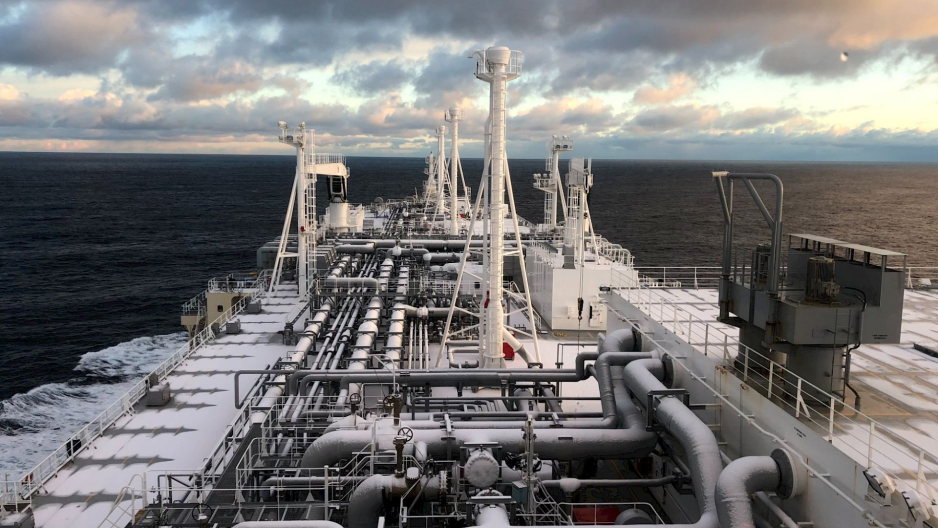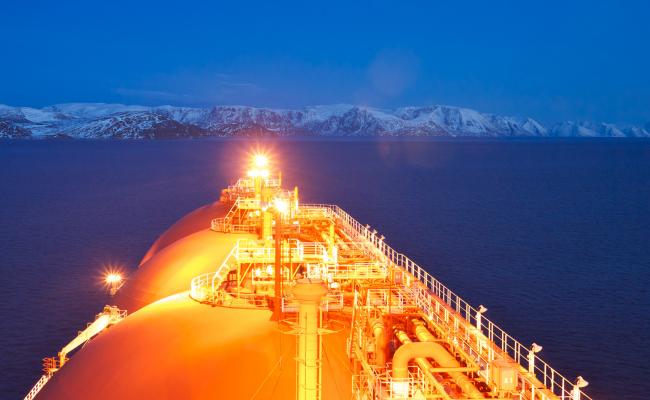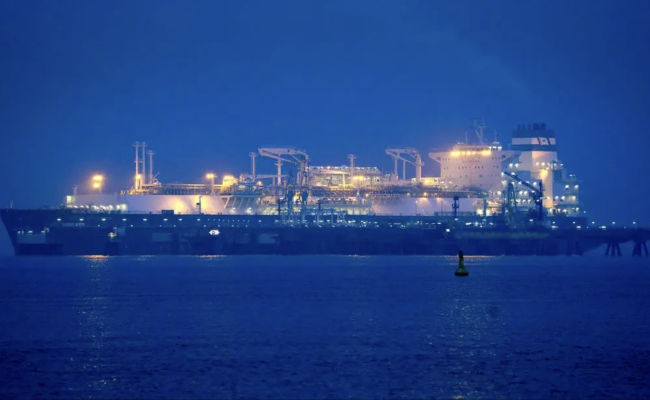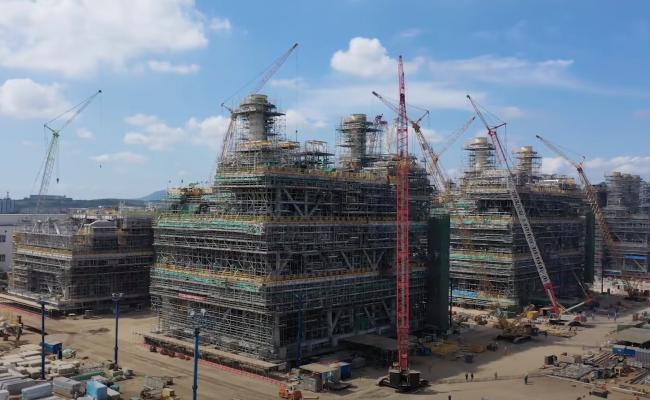Britain to Ban Transport of Russian LNG on UK-linked Vessels

Seapeak Arc7 LNG carrier. (Source: Seapeak)
The UK continues to lead the way against Russia’s LNG sector. New measures will directly target the transport of Russian supercooled gas to markets around the world. The ban will disallow UK-linked companies from carrying the country’s gas or providing maritime services, such as insurance or maintenance, to the vessels.
The UK has announced new measures against Russia’s liquefied natural gas industry. The government plans to phase in wide-reaching sanctions banning UK companies from providing their maritime services to vessels carrying Russian LNG.
“We are now going a step further by banning maritime transport and related services—like insurance—for Russian liquefied natural gas (LNG) exports to third countries. UK-linked ships and services won’t be allowed to help move Russian LNG globally,” the UK’s Foreign Office said in a press release last week.
The country was one of the first to ban the import of the supercooled gas into the island starting in January 2023. The now-announced plans could have far-reaching consequences for Novatek’s Arctic Yamal LNG plant.
“This action will significantly reduce Russian exports of LNG and directly cut off access to the UK’s world-leading maritime services. The ban will be phased in over 2026 in lockstep with our European partners,” the announcement continued.
Targeting UK-based operators
The Yamal project relies on a number of western shipping providers to carry around 20 million tonnes of liquefied cargo to markets in Europe and Asia. A key vessel operator is Seapeak Maritime (UK) Ltd, owner of six specialized ice-class LNG carriers: Eduard Toll, Rudolf Samoylovich, Nikolay Yevgenov, Vladimir Voronin, Georgiy Ushakov, Yakov Gakkel.
The company acquired the vessels in 2018 and 2019. They were purpose-built by South Korean Daewoo Shipbuilding & Marine Engineering (DSME) specifically for Arctic conditions. They excel passing through thick sea ice, often without icebreaker escort except for during the harshest conditions. But due to the special hull design they are uneconomical to operate in open water over long distances.
The vessels have been chartered to the Yamal project until 2045 plus option periods. Seapeak’s vessels carry around 7.5m tonnes of Russian LNG each year, 40 percent of the project’s total. It is unclear if Seapeak could employ the vessels for use with other global LNG projects, once the UK maritime services ban takes effect. The company has been contacted for comment.
The UK measures represent more bad news for Russia’s LNG sector and Novatek, the operator of Yamal LNG, especially. With the EU market off limits by January 1, 2027 the company has just over a year to revamp its logistics chain redirecting the flow of LNG to new buyers, primarily in Asia. If the maritime services ban affects operators like Seapeak, Novatek would face an immediate shortage of shipping capacity, especially during the winter and spring.
Arctic achilles heel
The shortage of ice-capable vessels has been Russia’s achilles heel to expanding its Arctic energy footprint. For a second winter in a row Novatek has been forced to mothball its neighboring Arctic LNG 2 project.
Ice-class LNG carriers that were supposed to be built by South Korea’s Hanwha shipyard remain undelivered due to U.S. sanctions. During the short summer months Novatek can use its growing fleet of aging shadow fleet tankers but for much of the year it depends on modern high-tech vessels, which Russia is currently unable to construct itself.
The country’s massive new oil project, Vostok Oil, has been delayed by several years for the same reason. Out of the initial batch of 10 ice-class oil tankers, the Far East shipyard Zvezda has thus far not been able to deliver a single ship, pushing the project’s opening date further into the future. At full build-out the project requires around 50 ice-capable tankers.
For the past four years Novatek’s Yamal LNG project remained largely shielded from Western sanctions, as the EU continued to rely on its supply for energy security. The new UK measures are the first sign that broader actions against the project now appear possible.




